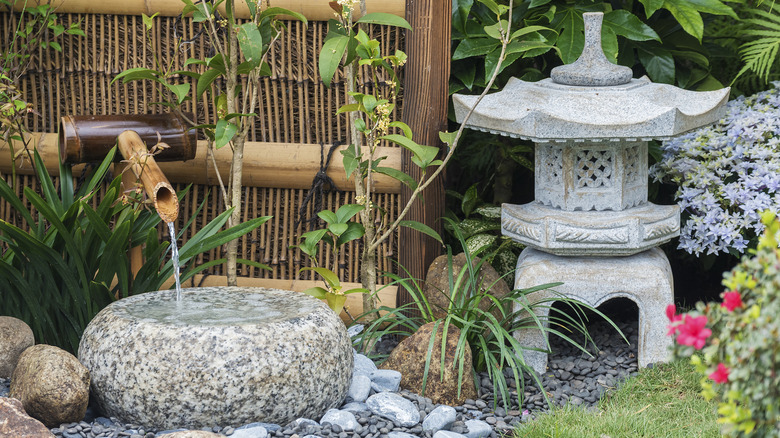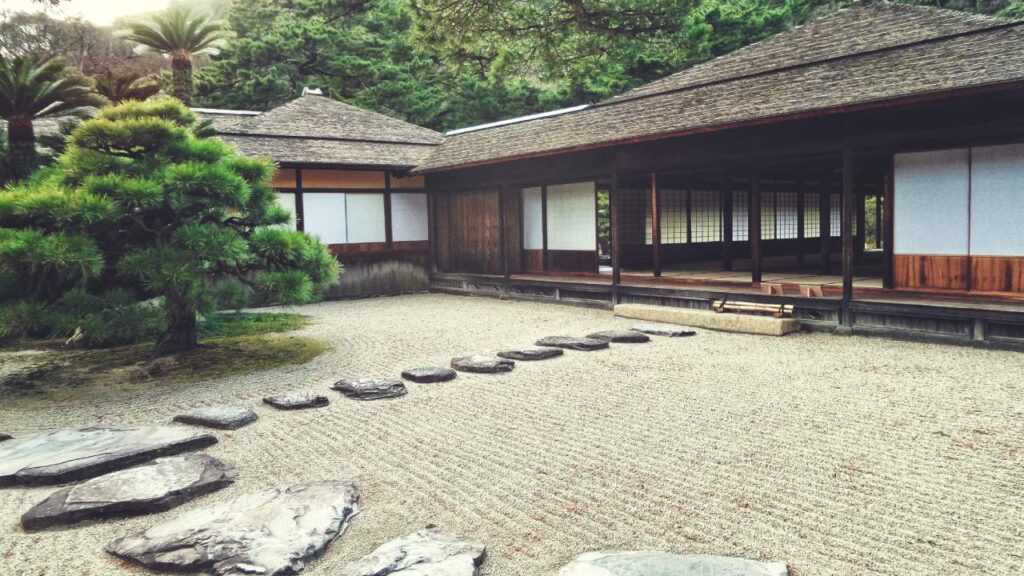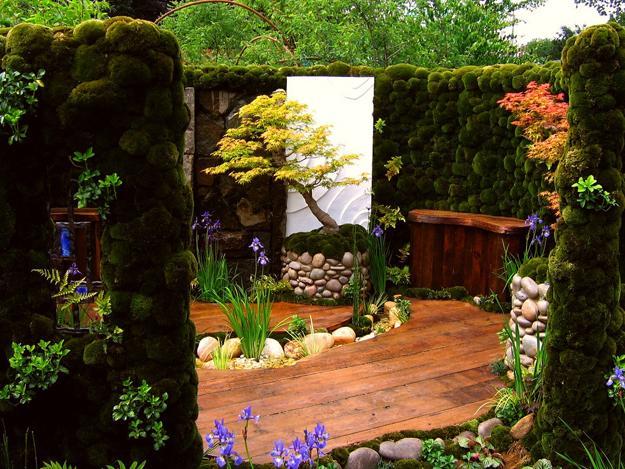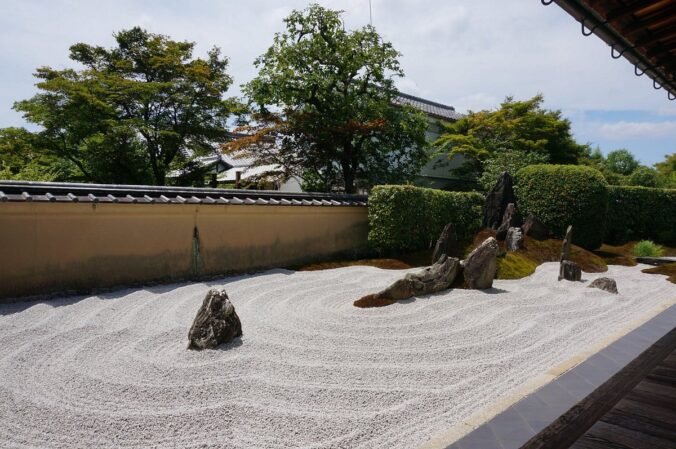Zen gardens are serene sanctuaries that evoke tranquility and harmony. They originated in Japan, drawing inspiration from the principles of Zen Buddhism. Incorporating Feng Shui principles into the design of these gardens can enhance their spiritual essence and promote a sense of balance and vitality. By harmonizing natural elements and arranging them mindfully, you can create a Zen garden that not only delights the senses but also nurtures the soul. If you need to buy new items for your Zen garden, rent a car from the car rental in Belgrade and drive to the store to pick up the needed items.
Understanding Feng Shui

Feng Shui, an ancient Chinese art, revolves around the idea of harmonizing individuals with their surroundings to promote positive energy flow or “chi.” It emphasizes the importance of balance, harmony, and the proper placement of objects within a space. In Feng Shui, every element holds significance, from the arrangement of furniture to the flow of water and the presence of plants. By understanding these principles, you can create a Zen garden that aligns with the natural flow of energy, fostering a sense of tranquility and well-being. To help you build your perfect Feng Shui garden, call an engineering expert witness.
Incorporating the Five Elements
The five elements—wood, fire, earth, metal, and water—are fundamental to Feng Shui philosophy. Each element is associated with specific qualities and energies that influence the atmosphere of a space. When designing a Zen garden, consider incorporating these elements thoughtfully to achieve balance and harmony. For example, wooden structures or plants represent the wood element, symbolizing growth and vitality, while water features such as ponds or fountains embody the flow of energy and renewal. By integrating these elements into your garden design, you can create a space that resonates with the principles of Feng Shui, fostering a sense of tranquility and balance. Once you’ve finished redesigning your Feng Shui garden, don’t forget to celebrate by throwing a party and inviting the best birthday party magician in Los Angeles to entertain your guests.
The Importance of Balance
Balance is a central concept in both Zen philosophy and Feng Shui practice. In a Zen garden, balance is achieved through the harmonious arrangement of elements such as rocks, plants, and water features. Similarly, Feng Shui emphasizes the importance of balance in the placement of objects within a space to optimize the flow of energy. When designing your Zen garden, strive to create a sense of equilibrium by carefully considering the placement of each element. For example, arrange rocks in clusters of odd numbers to evoke a natural, asymmetrical balance, and position plants strategically to encourage the flow of chi throughout the garden. Before designing your Zen garden, call a company that offers foundation repair in San Antonio.
Creating a Sense of Harmony
Harmony is essential to the overall aesthetic and atmosphere of a Zen garden. By blending natural elements with mindful design principles, you can create a space that exudes tranquility and serenity. In Feng Shui, harmony is achieved through the careful arrangement of objects and the cultivation of a peaceful environment. When designing your Zen garden, focus on creating a sense of unity and cohesion by selecting plants and materials that complement each other and reflect the natural beauty of the surrounding landscape. By cultivating harmony within your garden, you can create a space that invites contemplation and fosters a deep sense of inner peace.
Maximizing Positive Energy Flow
In Feng Shui philosophy, the flow of energy, or chi, is crucial to creating a harmonious environment. By optimizing the flow of chi within your Zen garden, you can enhance its spiritual essence and promote a sense of well-being. Consider incorporating elements such as winding pathways or gently flowing water features to encourage the circulation of energy throughout the space. Additionally, pay attention to the placement of objects and structures to ensure that chi can move freely and unobstructed. By maximizing positive energy flow within your garden, you can create a serene sanctuary that nurtures the body, mind, and spirit. When navigating legal complexities related to your garden or property, seeking guidance from the best data protection lawyer in Dubai can offer invaluable assistance in safeguarding your interests.
Embracing Simplicity

Simplicity is a hallmark of both Zen philosophy and Feng Shui design. In a Zen garden, simplicity is achieved through the minimalistic arrangement of elements and the use of natural materials. Similarly, Feng Shui emphasizes the importance of decluttering and simplifying a space to allow energy to flow freely. When designing your Zen garden, embrace simplicity by keeping the layout clean and uncluttered, focusing on a few key elements that evoke a sense of peace and tranquility. By simplifying your garden design, you can create a space that invites contemplation and fosters a deep connection with nature. If you’re exploring Zen principles in Belgrade, rent a car in Belgrade to visit serene gardens and tranquil spots around the city, amplifying your experience of simplicity and serenity.
Enhancing Tranquility with Soundscapes
Sound plays a significant role in creating a serene atmosphere in a Zen garden. Incorporating elements such as wind chimes, flowing water, or even subtle background music can enhance the sensory experience and promote relaxation. In Feng Shui, sound is believed to influence the flow of energy, with certain sounds promoting harmony and balance. Consider adding a small water feature, such as a trickling fountain or a gently babbling brook, to introduce the soothing sound of running water into your garden. Wind chimes can also add a melodic touch, filling the air with soft, tinkling sounds that evoke a sense of peace and tranquility. In legal cases involving complex medical issues, medical expert witnesses play a crucial role in providing insights and clarifications to the court.
Harnessing the Power of Aromatherapy
Aromatherapy is another powerful tool for enhancing the ambiance of your Zen garden. Certain scents, such as lavender, jasmine, or sandalwood, are known for their calming and stress-relieving properties. In Feng Shui, aromatic herbs and flowers are believed to purify the air and promote positive energy flow. Consider planting fragrant herbs or flowers throughout your garden to infuse the air with natural, uplifting scents. You can also roofing and construction services to ensure that your garden’s structures, such as pergolas or gazebos, are built to withstand the elements and provide a sturdy, serene retreat. Additionally, utilizing essential oil diffusers or scented candles strategically placed throughout the space can further enhance the sensory experience and promote relaxation.
Integrating Symbolism and Meaning
Incorporating symbolic elements into your Zen garden can add depth and meaning to the space, enriching the spiritual experience for visitors. In Feng Shui, certain symbols are believed to attract positive energy and promote harmony and prosperity. Consider incorporating symbols such as the yin yang, lotus flower, or bamboo, which are associated with balance, purity, and resilience, respectively. You can also incorporate meaningful stones or statues that resonate with your personal beliefs or spiritual practices, adding a personal touch to your garden design and creating a space that feels truly unique and special. Additionally, for those interested in diabetes management in Marietta GA, integrating elements that promote physical activity and healthy eating can further enhance the holistic well-being of visitors.
Nurturing Wildlife and Biodiversity
Creating a thriving ecosystem within your Zen garden not only enhances its natural beauty but also promotes balance and harmony within the environment. In Feng Shui, the presence of plants and wildlife is believed to attract positive energy and promote vitality and abundance. Consider incorporating native plants that attract pollinators such as bees and butterflies, creating a vibrant ecosystem that supports biodiversity. You can also add bird feeders or bird baths to attract feathered friends, adding a lively touch to your garden and fostering a deeper connection with the natural world. f you’re enjoying your garden during the warmer months, don’t forget to ensure your car air conditioning in Toronto is up to par for those post-gardening drives.
Embracing Seasonal Changes
One of the key principles of Zen philosophy is embracing impermanence and appreciating the beauty of each moment. In Feng Shui, the changing seasons are seen as an opportunity to refresh and renew the energy within a space. Embrace the seasonal changes in your Zen garden by incorporating elements that reflect the beauty of each season. Plant flowering bulbs in the spring, colorful foliage in the fall, and evergreen shrubs for year-round interest. You can also add seasonal decorations such as lanterns or ornaments to celebrate holidays and special occasions, infusing your garden with a sense of joy and vitality throughout the year.
Creating Spaces for Meditation and Contemplation
A Zen garden is a place for quiet reflection and introspection, where one can escape the chaos of everyday life and reconnect with the present moment. Create secluded spots within your garden where visitors can sit and meditate, surrounded by the soothing sounds of nature and the calming beauty of the landscape. Consider adding benches or stone seating areas tucked away in quiet corners, shaded by trees, or surrounded by lush foliage. You can also incorporate elements such as meditation cushions or prayer beads to enhance the spiritual experience and encourage mindfulness and self-awareness.
Honoring the Principles of Wabi-Sabi

Wabi-sabi is a Japanese aesthetic philosophy that celebrates the beauty of imperfection and transience. In a Zen garden, wabi-sabi is reflected in the simplicity and naturalness of the design, as well as the appreciation of the passage of time and the effects of weathering and decay. Embrace the principles of wabi-sabi in your garden by incorporating elements that reflect the beauty of impermanence, such as weathered stone lanterns, moss-covered rocks, or gently rusting metal sculptures. Allow your garden to evolve and change over time, embracing the natural cycles of growth and decay as part of its inherent beauty and charm.
Fostering Community and Connection
Finally, consider how your Zen garden can serve as a space for fostering community and connection among friends, family, and neighbors. In Feng Shui, the energy of a space is influenced not only by its physical elements but also by the interactions and relationships that occur within it. Host gatherings, workshops, or events in your garden to bring people together and create opportunities for shared experiences and meaningful connections. Encourage visitors to interact with the garden by providing opportunities for hands-on activities such as gardening workshops or art classes. By fostering a sense of community and connection within your Zen garden, you can create a space that not only nurtures the soul but also enriches the lives of those who visit it.

